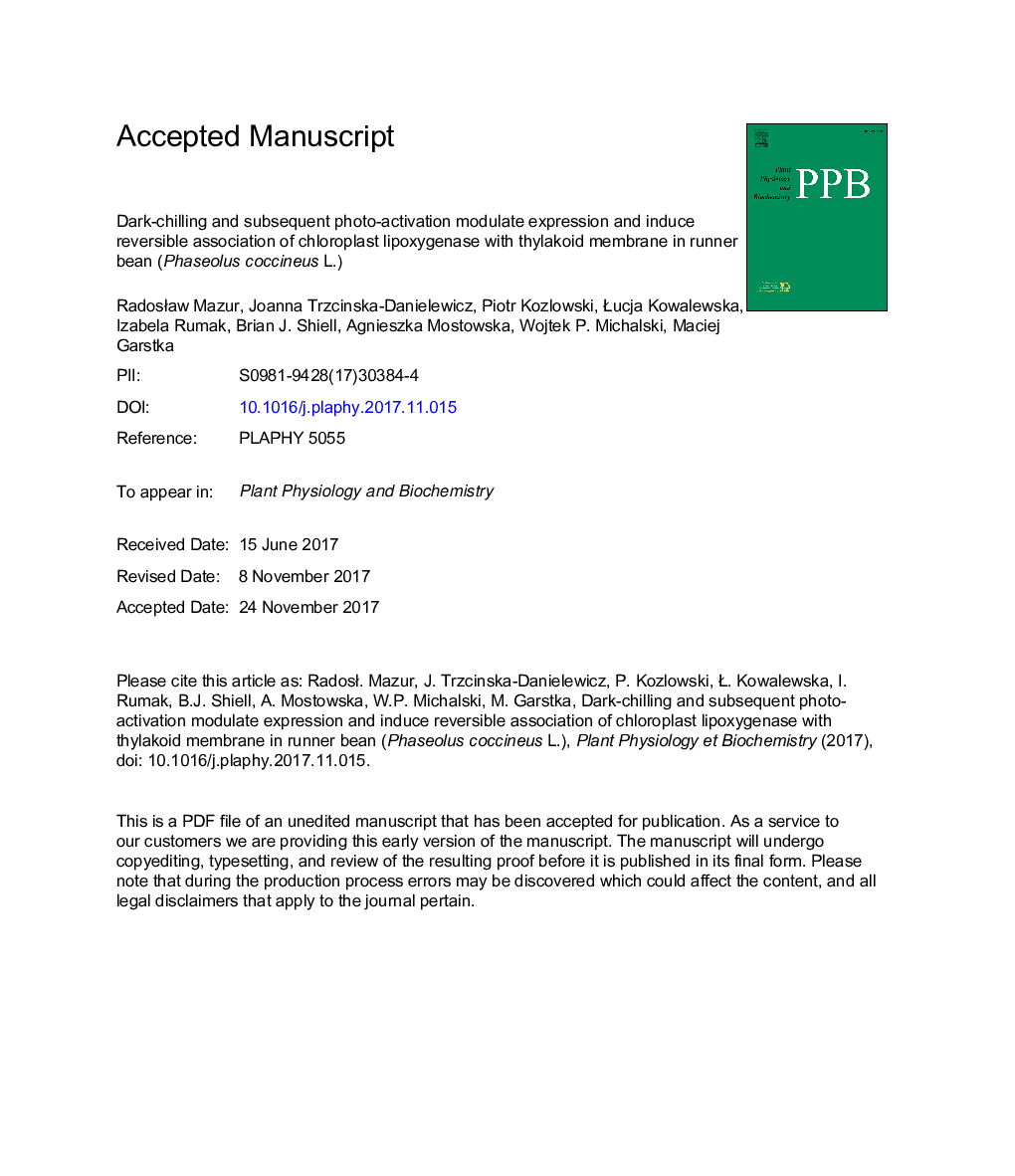| Article ID | Journal | Published Year | Pages | File Type |
|---|---|---|---|---|
| 8353622 | Plant Physiology and Biochemistry | 2018 | 36 Pages |
Abstract
Lipoxygenases (LOXs) are non-haem iron-containing dioxygenases that catalyse oxygenation of polyunsaturated fatty acids. This reaction is the first step in biosynthesis of oxylipins, which play important and diverse roles in stress response. In this study, we identified four LOX genes (PcLOXA, B, C, D) in chilling-sensitive runner bean (Phaseolus coccineus L.) plant and analyzed their expression patterns during long term dark-chilling (4 °C) stress and during day/night (21ºC/4 °C) temperature fluctuations. Three of the four identified LOX genes, namely PcLOXA, PcLOXB and PcLOXD, were induced by wounding stress, while only the PcLOXA was induced by dark-chilling of both detached (wounded) leaves and whole plants. We identified PcLOXA as a chloroplast-targeted LOX protein and investigated its expression during chilling stress in terms of abundance, localization inside chloroplasts and interactions with the thylakoid membranes. The analysis by immunogold electron microscopy has shown that more than 60% of detectable PcLOXA protein was associated with thylakoids, and dark-chilling of leaves resulted in increased amounts of this protein detected within grana margins of thylakoids. This effect was reversible under subsequent photo-activation of chilled leaves. PcLOXA binding to thylakoids is not mediated by the posttranslational modification but rather is based on direct interactions of the protein with membrane lipids; the binding strength increases under dark-chilling conditions.
Keywords
Related Topics
Life Sciences
Agricultural and Biological Sciences
Plant Science
Authors
RadosÅaw Mazur, Joanna Trzcinska-Danielewicz, Piotr Kozlowski, Åucja Kowalewska, Izabela Rumak, Brian J. Shiell, Agnieszka Mostowska, Wojtek P. Michalski, Maciej Garstka,
